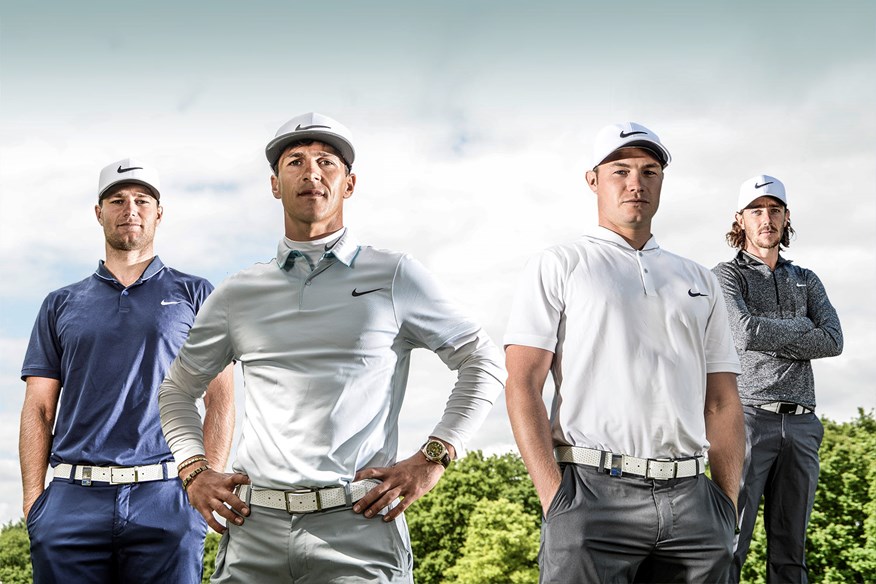What life is really like on the European Tour
Published:
What is life like as a young pro on the European Tour?
The Tour has never been more competitive than it is at the moment and while it is hard to earn a place among Europe’s golfing elite it is even harder to stay there.
So when you do get that coveted card, you want to keep it. It opens doors to Europe’s best tournaments at the best courses; world travel; major opportunities; and riches beyond your dreams if you can bag a big title.
To find out what life is really like as a young Tour pro, we met four 20-something stars who are all sponsored by sports giant Nike.
Lucas Bjerregaard
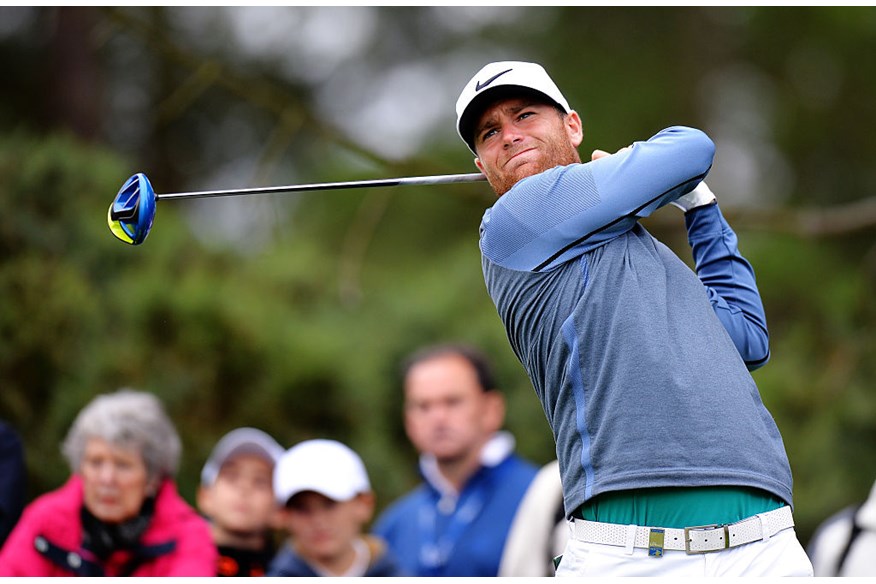
Age: 24
Nationality: Danish
Turned pro: 2011 (plus 5)
Highlights so far: T3 in 2016 Volvo China Open and 2015 BMW Masters. World ranking: 168th
Thorbjorn Olesen
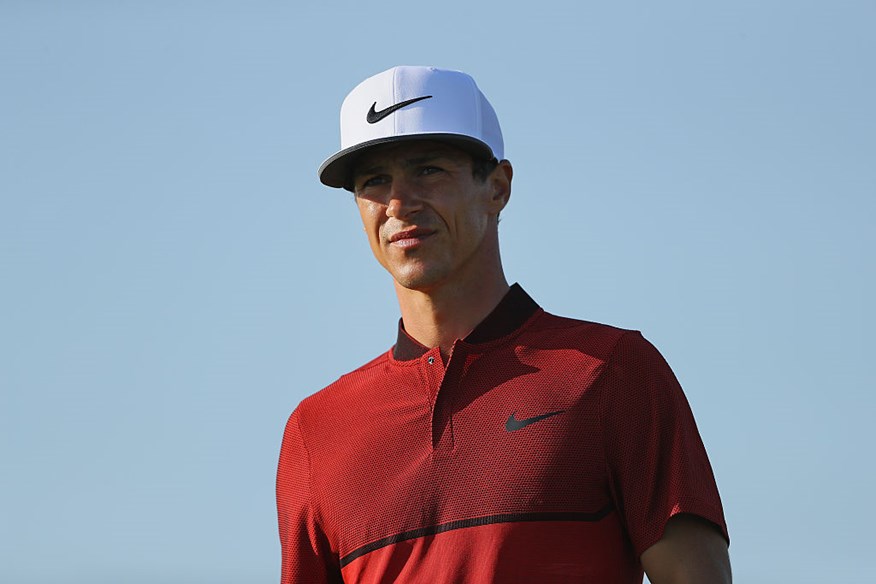
Age: 26
Nationality: Danish
Turned pro: 2008 (plus 3)
Highlights so far: Three European Tour wins (2012 Sicilian Open, 2014 Perth International, 2015 Dunhill Links)
World ranking: 85th.
Ollie Fisher
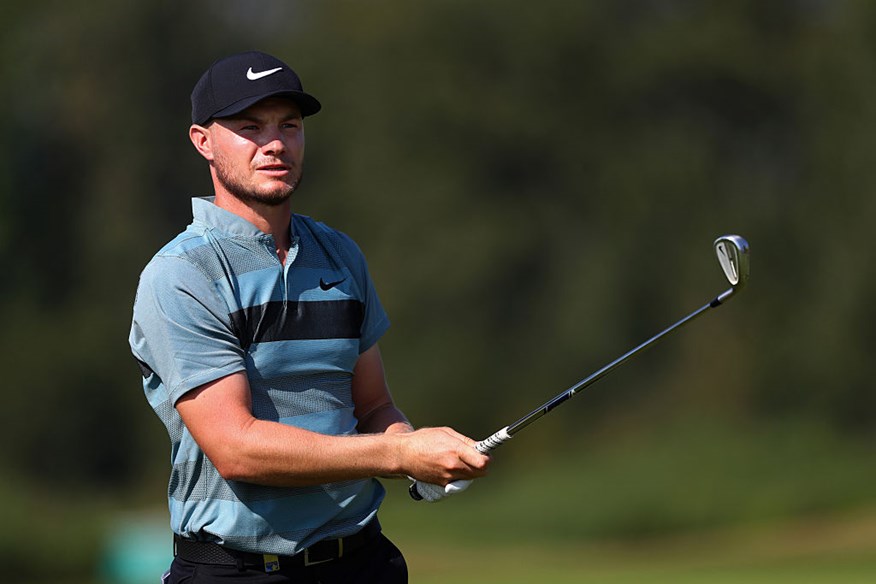
Age: 27
Nationality: English
Turned pro: 2006 (plus 4)
Highlights so far: Won the 2011 Czech Open. World ranking: 469th
Tommy Fleetwood
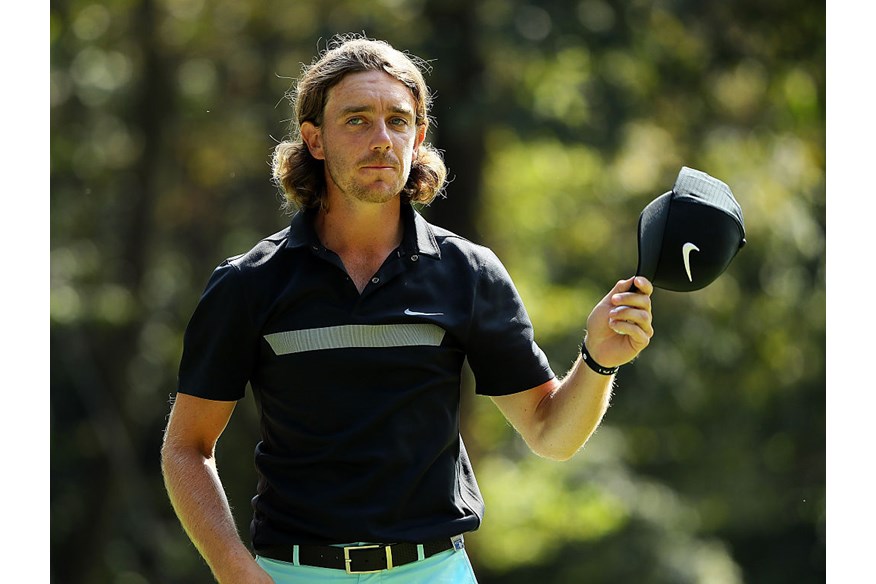
Age: 25
Nationality: English
Turned pro: 2010 (plus 5)
Highlights so far: Won 2013 Johnnie Walker at Gleneagles, 2011 Kazakhstan Open
World ranking: 166th
Collectively these four have won five titles between them but they are still learning their trade.
During often turbulent and painful apprenticeships, they’ve endured moments of agony and ecstasy in equal measure…
Here is a look at life as a young European Tour pro
The early years
OF: I played football and rugby, but was better at golf so I started competing at 10 or 11.
I enjoyed it more too and had a good crowd of juniors in the club which helped – they were a bit older, but let me join them and I got better quite quickly. At 12 or 13, I was playing at county level, and then represented England.
TF: My brother played on Monday night at the local muni in Southport, so my dad cut a club down for me and I just used to hit a few balls while he was playing. Gradually things built up and I started playing.
TO: Although I made the national team when I was 15, it wasn’t working that well and I didn’t get much chance to play in many international tournaments apart from a couple of British Juniors and one European championship.
I played a lot in Denmark and Scandinavia and played well on the Ecco Tour in Denmark, which got me a few invitations for the Challenge Tour and European Tour, including the Scandinavia Masters.
LB: I can remember my first time I borrowed a set of clubs from my friend and I couldn’t hit it off the tee, it was terrible. Then, all of a sudden, I took out this 8-iron and flushed it and that was it; I was sold! I really like practising, so I spent a lot of time on the range. All summer long, we would get on our bikes and go and play 36 and sometimes 54 holes.
OF: Golf was always at the front of my mind – all I ever wanted was to be a pro. As a youngster, I always looked forward to going to the golf course and looking after my clubs, getting a new pair of shoes or whatever. In the classroom I used to daydream about playing golf, especially if it was a nice day! Every time I watched the Masters or the BMW PGA at Wentworth, I dreamt of playing in such events.
LB: I think it was a couple of years before I had lessons and then I started practising more with my coach, who I still see – he taught me all the basics and got me to this point.
TF: My dad taught me for a long time – he got down to a four handicap at one point – and he’s quite knowledgeable about the game and he still looks at my swing, which he knows as well as anybody. My first ever lesson was with Denis Pugh when I was about eight; there’s a video of it somewhere. When I got into the England teams Alan Thompson was my coach and actually I’ve just gone back with him.
LB: When I started, Tiger was in his prime and a big influence. I spent a lot of time playing with my friends in the evenings and having fun. All of a sudden I found I was pretty decent at it and started practising more on my own and figuring I had a shot at this.
TF: I just enjoyed it and it’s only when it comes to leaving school you decide what you’re going to do. Because I loved golf and practised hard, I thought I’d give it a go, do a couple of years full-time and we’d see where we were after that. It turned out I was bound for the Tour.
Preparing for the big time
TF: I’ve always worked hard so I don’t know what the sacrifices are because I’ve always done it. I never did much clubbing during my youth – I’m still kind of in my youth actually! Between 18-20 I didn’t have those times where I went out with my mates as much.
I was travelling as well, but wouldn’t change any of it – it was the way of life. You’re surrounded by other people who are doing the same, so you don’t think anything of it.
OF: The same for me. Straight after school I would go to the course. I was never one for going out and hanging around in streets. When you’re a young sportsman your time is pretty well spent in the evenings and weekends when you’re competing.
It was great fun and I’ve a lot of good memories. At amateur level it’s all about the family, with mum and dad and grandparents taking you to tournaments. Plus I enjoyed fair bit of success, which helps. English amateur golf is a very good stamping ground.
TO: It’s such a demanding sport and you have to take so much time out of your schedule so a lot of parties and vacations with friends have to be turned down.
Finally making it
TF: I just thought it was bloody hard! The Challenge Tour was fine because I was playing with guys I’d played with as an amateur. But to come out here, I didn’t know anybody. I’ve got massive respect for players who come out here and finish in the top 60 in their first year on Tour.
It’s unbelievably hard – the courses are longer, they’re tighter and tougher and the players are all better. It’s really hard. You have to play well to make a cut to start with, so if you finish in the top 10 or 20 you’re playing really well.
OF: I got my card in 2006 and did well to keep it that year. I had a decent season in 2008, but I’ve had times when I’ve played some nice stuff and other times when I’ve struggled. I’ve experienced the emotions of fear when you’re thinking ‘the last thing I want to do is play’ and other times where I can’t wait to play.
LB: It was pretty intimidating at the outset, especially at events like the BMW PGA. On the range – no matter where you are – you’re next to someone you’ve seen winning on TV, and you can’t help but look at them. At first you compare yourself to everyone to see if you’re good enough. You want to make cuts and keep your card, but now I’m not worried about those things… I want to get my first win now.
Keeping your card
TF: Is it tough? No, it’s a piece of cake! Only joking. It’s a tough game and when you turn pro that’s when you realise it. I strolled through everything until my first year on Tour. I had a great amateur career, getting to world No.1, and won the Challenge Tour in my first year, so everything was hunky dory. In my first year on Tour I’d earned about six grand with two months to go and the realisation hit home hard. I’d never struggled before. But in my first year on the main Tour, I suddenly hit a wall.
TO: It’s tough! I’ve definitely had down periods. Two or three years ago I was 13 in the world and playing really well. But I then hit a bit of a wall, had an operation on my left hand, so it’s been up and down. However, the past six months I’ve moved in the right direction.
OF: Although I’ve got a lot of experience under my belt now, I’m still learning an awful lot. There’s a lot of maturity out here and the longer you’re on Tour, the more you can go along with your own business. But sometimes you don’t have to produce unbelievable golf: the most important thing is scoring well and that doesn’t mean smashing it 330 yards off the tee or ripping it every time. It’s about the whole package and whether you scuff it in the trees or miscue, it doesn’t really matter – it doesn’t have to be pretty so long as you’re in control of yourself mentally.
TO: When you get down on yourself it is depressing and difficult to get out of, but now
I feel more comfortable and accept I’m going to have periods when I’m going to play bad golf. You just have to fight through it and keep believing in yourself.
LB: The competition is tough and I’ve put a lot of hours into it. I’m a really hard worker and this has definitely not come easy. I realised this when I was young and had a talent for golf that I needed to put a lot of work and dedication into it. Even when I’m at home – and my girlfriend will back me up on this – I’m thinking about golf and watching it on TV.
Daily life on tour
LB: It’s great. I’m living the dream. There’s a lot of travel and I’m seeing a lot of new places, and a lot of hotels, but as long as you enjoy the game and are competing against such good players, it’s not a problem. It’s when you don’t enjoy all the other things that it can become a little more of an issue.
TF: We travel a lot, everybody is weird! And that’s about it – spending your time with a bunch of weirdos all the time! I enjoy travelling and I enjoy seeing different places, so you’ve got to make the most of it. Mind you, it’s not as nice as people think when you’re stuck for two days in the middle of nowhere in China.
OF: It’s very easy to go around with the same guys each week, the same faces. Some guys can be pretty miserable, some can be happy so you try and find the middle ground and be your own person and work out where it’s got to be, just like in any other job.
TO: I just want to get better. I still have a lot to work on and have changed a few things in my swing and made it more consistent. As a result, it’s easier to get on the range now, whereas a year or so ago I didn’t know where to go. Now I’m a lot more focused.
I knew I’d arrived when…
TF: I won. Up until then I think I’d only had two top 10s that year (2013), ‘though I’d played ok. But when I won I felt a bit more at home, like I’d earned my place among the guys who’ve been out here for years. Afterwards, I felt comfortable everywhere I played.
OF: As I’ve got older and wiser I’m more aware of what I need to do, which is to take each week in my stride and relax and enjoy it for what it is, rather than be too hard on myself. Trying to maintain my energy levels for a week is where I’m at now. Is the Tour everything it’s cracked up to be? Yes, and more. But it’s more what you make of it yourself.
LB: I had a tough patch in the middle of my first season, but played well in the end to keep my card. I was happy about that even though I only just kept it. You do question whether you’re good enough. I had a good finish last year and have been close to a couple of wins and been in contention enough to think I belong out here.
TO: Well, I’ve had a year-and-a-half on the PGA Tour and felt I’ve tried a lot already, playing in most of the big tournaments, a lot of Majors. So I know more what to do, how to play.
Money or majors?
TO: It’s a big year and hopefully I’ll get into the top 50 as quickly as possible.
TF: Titles, any day. I didn’t grow up with much money, so I never really bothered about it.
I have enough now to live and I’m fine.
OF: They go hand in hand really. Win titles, you win the money. You’ve got to keep looking ahead, thinking about what you want to achieve. The only thing you can control is what’s going on inside yourself and if you do that, you’ve got a chance of achieving titles and boosting that bank balance.
LB: Titles, no doubt. Honestly, money doesn’t mean anything to me – not because I’m from a wealthy family or anything, but it’s never been a motivation. Obviously you need to make enough money to be able to travel and play and I realise that a lot of guys out here make a lot of money. I’m here not just to make it work, but to win. I’ve set my goals pretty high.
Loving the Swoosh
TF: I’ve been with Nike 12-13 years, pretty much from the start. I’ve always used the clubs and apparel-wise I think we’re streets ahead. From when I started, the golf ball now is amazing but the biggest change for me has been the woods, the driver, the fairway woods.
OF: I’ve been with Nike since 2003 – my first set of clubs were Pro Combo, a lovely set of irons. They helped me out as an amateur with clubs and apparel and have always been great to deal with. I’m lucky to have their support.
LB: This is my first season with Nike and I’m really excited. I can honestly say this is the best bag and set-up I’ve had so far. It’s been a really easy transition.
TO: I’ve been with them three years and I’m really happy, benefiting from not only great equipment but a team who pull out all the stops for us guys on Tour. It’s a dream to be part of the team.
If I wasn’t a golfer…
TF: I starred in drama at school and that would have been my next career. I’m not sure about acting, I would probably have been involved in the theatre doing something creative.
OF: No idea. I don’t think about it too much.
LB: I wanted to turn pro since I was 13 or 14 so I knew quite early I wanted to do this full-time.
TO: Not sure. I’ve always wanted to emulate the feats of my two heroes – Tiger Woods and Thomas Bjorn.
So you want to be a tour pro?
TF: Work on the so-called easier shots, which I’ve been doing recently – 3 to 5-foot putts, getting up and down from inside 15 yards and short irons. If you hole a three-footer you just move on and don’t think about it, but if you miss, it does your head in. People don’t realise that. If you do all the ‘easy’ stuff you can pick up a shot per event and those add up. It’s the simple stuff that makes the biggest difference.
TO: It’s important to play a lot, especially in tournaments, but make it as fun as possible without getting too serious or technical.
OF: For me, the biggest thing is time. On Tour, you can play when you’re 20, you can play when you’re 50, so the biggest thing is just taking your time to enjoy it. It’s important to appreciate the lovely weather, lovely courses and lovely places and you’ve got to embrace them. If you’re not enjoying yourself, you’re going to struggle.
LB: I agree. In the early stages when you’re playing a lot, have fun with it. If you start practising too seriously when you’re really young there’s a chance you may burn out. When you’re 10-14 it’s important to have a lot of fun and compete with your buddies. We used to run around the chipping green for hours, throw a load of balls in the middle of bushes or whatever and find out who could get a ball on the green first! We’d be hitting over trees, over the clubhouse, really stupid stuff. As you develop, you start practising better and focus your practice more in specific areas.
